Ever heard your child say something in an all too familiar sarcastic or snarky tone? It’s even worse when you’re in public or at a work function and they let loose one of those zingers. Ugh. We all know kids are the best at holding up a mirror to their parents. We also know that parents are their kids’ most influential role models – we teach our kids by how we act and react, as well as how we consider and treat ourselves in difficult moments. Parents of gifted and twice exceptional kids, likely share intense personalities in varying degrees. Our responses to challenging situations have enormous impact on our children’s empathy for others and for themselves.
There are subtle times when we forget we are modeling less than appropriate behavior. Every now and again I hear one (maybe all) of my kids reacting to someone or something (traffic?) in a less than lovely tone and I’m pretty sure they picked that attitude up from me or my spouse at one time or another.
Then there are those not so subtle times when, for whatever reason – sleep deprivation, stress, worries – parents lose perspective. Many years ago walking into preschool with my son, we witnessed a father admonishing his daughter for pointing at him. While extending his index finger directly at his her, he angrily stated, “Don’t point at me like that!” Did he know he was modeling exactly what he was telling his child not to do?
At both the subtle and not so subtle moments it’s important to grasp the lasting effect parental behavior has on kids. The goal is to teach emotional management and empathy through the perspective of others. Just as important is demonstrating forgiveness toward ourselves when we err. Start by planning strategic ways to intentionally impart self-awareness and positive messaging. Help your kids learn the tools to recognize their own emotional intensity – often the bane to many relationships – by role modeling alternative ways to handle and think about challenging situations.
If a child has difficulty shifting from an original idea or plan, say something like “My plans got cancelled today and boy was I upset. It’s hard for me when plans change. I can actually feel my temperature rise.” This vignette validates frustrated feelings and encourages self-awareness. Then perhaps say “I could have been in a bad mood all day, but I took a deep breath and tried really hard to find the positive – that I had extra unplanned time in my day to do something else.” Now you’ve indicated that you had a choice and found the upside to the situation. Draw the conclusion that “You just never know what opportunity lies around the corner when your schedule is changed.” Having this conversation with a child shows them how to lift the fog of emotional intensity with a positive reframe.
If a child is struggling with a friend, sharing your own relationship challenges and asking your child for their suggestions can help normalize the situation for them and empower them to think of strategies. “Hey, I had a hard day today. My friend and I did not see eye to eye and I am afraid she is angry with me. What do you think I should do?” By asking a child to engage in problem solving, you accomplish several things. First, she gets to practice out loud, and in a safe place, how to handle an unhappy situation between friends. Second she has the opportunity to give an adult her advice and suggestion – this is a major self-esteem booster. Third, if she is having a similar challenge, it let’s her know she is not alone. Last, she learns that it’s okay to ask for advice. Sometimes, gifted perfectionism gets in the way of allowing adults or kids to admit they need help. Role modeling this strategy is key for kids to accept their strengths and their challenges.
Temperance and acceptance are two approaches I suggest role modeling to arm our children with necessary skills to navigate life with empathy for others and forgiveness toward themselves. Temperance is difficult because it requires changing our hard-wired response to a trigger. When identifying situations that elicit a strong reaction we need to resist the temptation to respond immediately. If someone just doesn’t get your child or a co-worker grates on your nerves, rather than an immediate text, email or phone call addressing the situation, schedule an in person meeting in a few days. It’s hard to remember in the moment but a “tincture of time” can truly diffuse an otherwise explosive moment.
Our digital native children navigate a world where text messaging is the preferred mode of communication, sometimes while they are in the same room with one another. Exercising temperance, controlling that emotionally driven impulsivity requires a great deal of self-awareness and the ability to adjust our reactions before we show them, particularly where technology is concerned. It’s a little like jumping off a moving walkway. We need to find a way to pause in the moment of big feelings, and consciously choose not to respond. Maybe we need a voice saying “Caution, time to jump off the moving walkway!” rather than the airport voice that let’s us know when the walkway is ending. Then we need to verbalize – out loud – to our kids that we succeeded in abstaining from an immediate response. When anger churns up, there is a moment when we can recognize it, which is the first step toward neutralizing it.
The secret to succeeding in tempering our reactions is keeping a prized goal in mind; better communication, better understanding, in short – better relationships. What are the strategies for this about face? First and foremost to identify a goal so important that it trumps the physiological response to our big feelings. Remind yourself of that goal – a sticky note on the dashboard, inside your wallet, on your bathroom mirror. Maybe it says “relationships,” or “communication,” or “success” or “happiness.” Maybe a mantra works better for you, “Chill my feelings so I don’t kill my friendships” (which can be shortened to ‘chill don’t kill’). Then when feelings come up, take a deep breath. Smell the roses and blow out the candles. Visualize how your reaction will affect that goal – negatively or positively? Take a moment and be proactive rather than reactive.
Modeling healthy reactions to our own behavior sends our kids an important message about empathy and understanding. Accepting mistakes, owning the consequences, and forgiving ourselves teach valuable lessons. Reacting to our own errors in a sympathetic manner shows our children that making mistakes is okay and if we give the message that mistakes and challenges are the seeds for learning and growth, even better.
Like temperance, acceptance is difficult to role model because perfectionists know better than anyone else how to beat themselves up and focus on all the things they’ve done wrong. But consider this: if you role modeled some pretty poor behavior, you’ve actually given yourself the best possible role modeling opportunity – own up to your mistake, name it, then say what you wish you had done or how you wish you had reacted, and finally apologize. So if you yelled at the car next to you on the highway or lost it with your child, his teacher, or your colleague, make amends either in front of your child or tell her about it later. Tell her what you did and how you made up for it. Tell her how hard it is to own up to mistakes and how challenging it is to admit to poor behavior. Then let her know how it felt to make amends and move forward. Even if the other person was not forgiving let your child know that this process allowed you to feel better about yourself in the end. Taking responsibility along with forgiveness are important skills for everyone to learn. We often forgive our kids and others easier than we forgive ourselves. Modeling acceptance and forgiveness toward yourself can help avoid self-deprecating and critical behavior in your children.
If that dad pointing his finger in the preschool entranceway started laughing and said to his daughter – “Did you see what Daddy just did? I guess it’s hard sometimes for me to control my pointer finger too! Maybe we can both try together since neither of us likes it when the other points and yells.” Now the child understands that it’s okay to make mistakes and she learns that it’s important to have a sense of humor and to take responsibility. And you know what, if he didn’t do that in the moment, it is just as good later in reflection to talk to her about it too. Taking time and reflecting back – whether you’ve hurt your child, your spouse or someone else still carries the full weight of an apology and acknowledges the other person’s feelings. That’s the great thing; it’s never too late to be a Super (role) Model!

Author: Julie F. Skolnick M.A., J.D.
Julie Skolnick, M.A., J.D., is the Founder of With Understanding Comes Calm, LLC, through which she passionately guides parents of gifted and distractible children, mentors 2e adults, and collaborates with and advises educators and professionals on bringing out the best and raising self-confidence in their students and clients.


